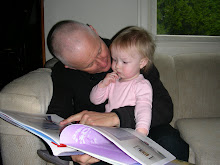We live in anxious, confusing times. Old and trusted patterns no longer hold. Everything seems to be up for grabs. Familiar roles collapse. Institutions are no longer reliable. It is hard to know what to expect next. There are days when it seems that nothing really works.
It is easy to feel anxious. Fear lurks around every corner. The only thing we can be sure of is that we cannot be sure of anything. We scan the horizon for a vision but it seems impossible to discern a clear way forward.
What might leadership look like in such tumultuous times?
I recently heard leadership defined as “being a non-anxious presence.” I do not know the origin of the definition; google leads me to believe it is neither original nor new. But it is new to me and it strikes me as a powerful vision for leadership in the deeply unsettled context of human institutions today.
When the way forward is unclear it is tempting to panic. Anxious leadership casts around desperately saying, “We must do something.” Someone finally comes up with something; anxious leadership declares, “This is something, let’s do it.” It does not seem to matter what the “something” is; it only matters that we do something. The tension of being still and holding the doubt and confusion is just too painful to bear. So we rush to whatever plan seems to present itself at the moment and pursue our plan with tenacity until finally we have to admit our plan has failed.
Richard Rohr says that a priest in the church has only one job. The priest’s job is to tell people, “It’s okay.” A priest is uniquely qualified to fill the role of being “a non-anxious presence,” because a priest has a larger, broader, and deeper perspective than sometimes presents itself in the midst of the turmoil of daily life.
A priest has the capacity to reassure the community because a priest is called to stand a little bit apart from the chaos of daily affairs and to bring the assurance that “this too will pass.” Whatever anxiety or fear currently grip our hearts, the priest reminds us that there is another deeper, fuller realm in which we can know that, whatever is going on on the surface, God is present in the depths; we are not alone.
I have a sign on the cupboard door in my office that declares, “It will all be okay in the end. If it is not okay, it is not the end.”
Julian of Norwich, though not officially ordained in the church, filled the priestly role when in her Revelations of Divine Love, she wrote, “All shall be well, and all shall be well, and all manner of things shall be well.”
Julian was no pie-in-the-sky starry-eyed idealist. Julian of Norwich was a child when the bubonic plague first reached England. Within her lifetime nearly half the population of England died from the plague. Julian had seen suffering, pain, sorrow, and human tragedy beyond imagining. Yet, Julian could peer into the face of this desperate affliction and declare, “All shall be well, and all shall be well, and all manner of things shall be well.”
This is the leadership of the “non-anxious presence.” Julian was able to offer this leadership, not because she believed everything in life always ran smoothly, but because she had found within herself a place of peace and steadiness. She had made the journey, in a time of great suffering, to her own non-anxious place.
The journey for a leader to become a “non-anxious presence” travels through deep and treacherous waters of doubt and uncertainty. The disciplines for this journey do not come easily to leaders in a culture that worships activism and reveres efficient management. But becoming a “non-anxious presence” is a powerful call for leadership in anxious times. If we intend to lead in the current upheaval, we must find our way to that non-anxious presence in the midst of the turmoil.
Introduction
The name for this blog comes from the Hebrew word merchab. Merchab is a masculine noun that appears most often in the Psalms of the Hebrew Scriptures. It means a broad or roomy place, an expansive place, a wide place. Read more...
June 4, 2009
A Non-Anxious Presence
Labels:
Leadership
Subscribe to:
Post Comments (Atom)

5 comments:
Thank you for your insightful comments on being a "non-anxious presence".
For what it's worth, Parker Palmer and Edwin Friedman both use this phrase in their writings, and this morning I discovered an interesting leadership model based on this concept.
Here's the link in case you'd like to take a closer look:
The Power of Presence
http://archive.constantcontact.com/fs002/1101927169235/archive/1102459812057.html
thank you Metta. I would love to know the original source of "non-anxious presence".
Murray Bowen, one of the parents of family therapy and an early developer of family systems theory originated the term, 'non anxious presence' and the importance of this quality in calming an anxious, chaotic family system or any system.
Edwin Friedman was his student
Pretty! This has been a really wonderful post. Thanks for providing this information.
I appreciate this perspective on leadership in uncertain times.
Post a Comment